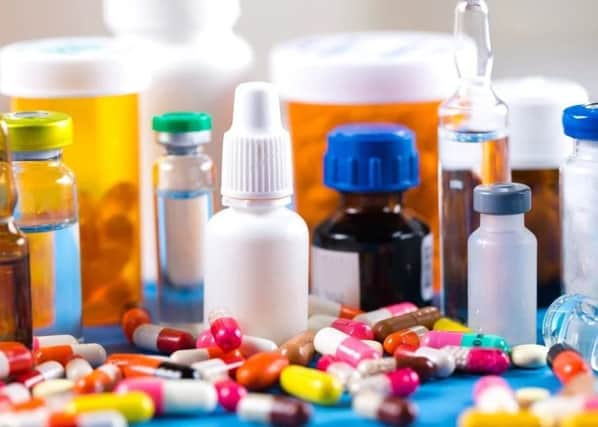Drugs firms profiteer from NHS by hiking cancer drugs prices


Cancer patients are let down by greedy drug companies who delay availability of well-established treatments and raise the prices beyond what the NHS can afford, academics said.
They pointed out the prices of 14 cancer drugs - which cost just pennies to make - have increased by more than 1,000 per cent over the past five years.
Advertisement
Hide AdAdvertisement
Hide AdTreatments for cancers including leukaemia and breast cancer can be produced for less than one per cent of the prices charged in Britain.
But the NHS pays more because health bosses fail to contest the price or challenge the firms.
Dr Andrew Hill, says the price hikes are “particularly worrying”.
He said: “We were surprised to find several companies consistently raising the prices of cancer treatment.
Advertisement
Hide AdAdvertisement
Hide Ad“Twenty treatments have shown rises of over 100 per cent in the last five years, and in two - busulfan (used to treat leukaemia) and tamoxifen (breast cancer) - prices have increased by over 1,000 per cent.
“We have found that some companies take over the supply of some generic cancer medicines and then raise the price progressively.”
The amount paid by the NHS was “under the radar” and added: “This figure will probably be in the high hundreds of millions of pounds per year, or possibly £1 billion.”
He said: “They are not negotiating well enough, they should be looking at any company that starts raising the price of any drug.”
Advertisement
Hide AdAdvertisement
Hide AdCancer patients are now living longer as the disease becomes chronic rather than acute and access to drugs - produced for pennies - improve lifestyle quality and extend life expectancy.
Dr Hills and co-author Melissa Barber were unable to calculate the exact cost to the NH.
But they told the 2017 European Cancer Congress in Amsterdam the NHS paid £380m more in 2015 than it had five years earlier because of greedy drug companies.
In their report Hills and Barber say the price of chemotherapy drug melphalan rose by 230 per cent in the UK, rising from 55p for 2mg in 2011 to £1.82 in 2016.
Advertisement
Hide AdAdvertisement
Hide AdIn stark contrast, the Italian authorities fined the South African drug company Aspen millions when in 2014 they threatened to stop supplying ovarian cancer drugs if healthcare chiefs did not agree to a price hike of up to 1,500 per cent.
In their report Dr Hills and Barber said: “The negotiation strategy adopted by Aspen was so aggressive as to reach the credible threat of interrupting the direct supply of the drugs to the Italian market.”
Ms Barber said: “Tamoxifen, used to treat breast cancer, can be manufactured for less than two US dollars per month of treatment, and imatinib, used in the treatment of chronic myeloid leukaemia, can be produced for $54 per month.
“Showing that certain cancers could be treated for very low prices could transform the future of people with these cancers in very low-income countries where there are usually few or no treatment options.”
Advertisement
Hide AdAdvertisement
Hide AdProfessor Ian Banks, chair of the Patient Advisory Committee, said: “Research presented at the ECCO Congress covers the whole of the cancer field, including important policy issues like those raised in these abstracts.
“The availability and pricing of treatments are of great interest and concern to cancer patients, and we consider it important to encourage the widest possible debate on them, as well as on other issues that affect patients’ quality of life.”
The British Generic Manufacturers Association called for competition and claimed the prices were hiked by companies because there was only one supplier.
A spokesperson said: “That is because the total market size is too small to be attractive for generic companies to enter, since they would not recoup the million-pound plus costs of developing, testing and registering a new generic medicine.”